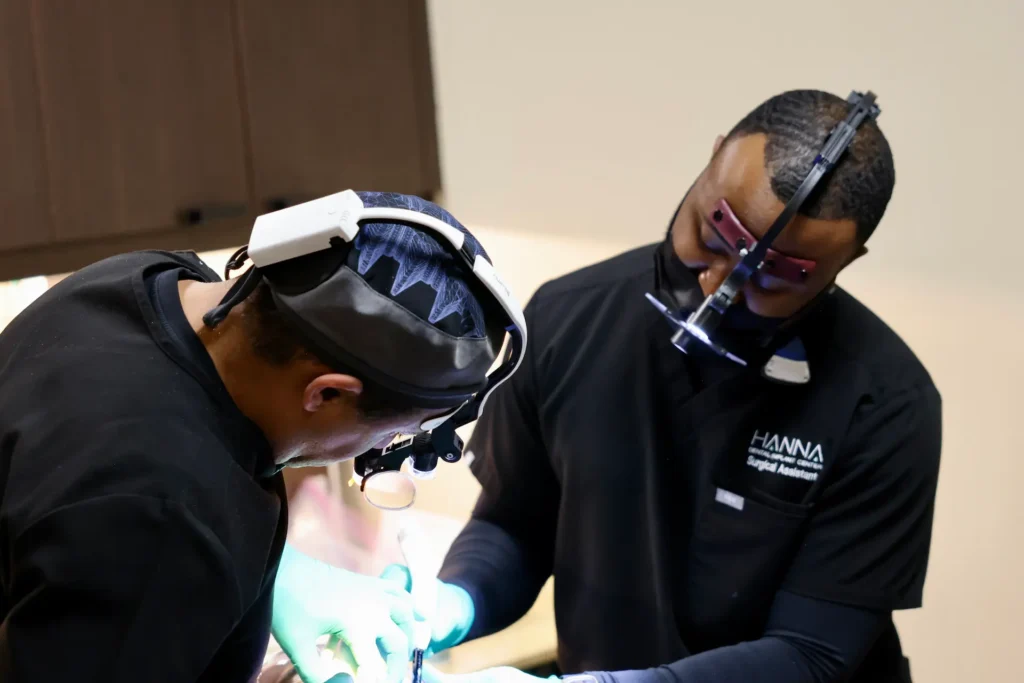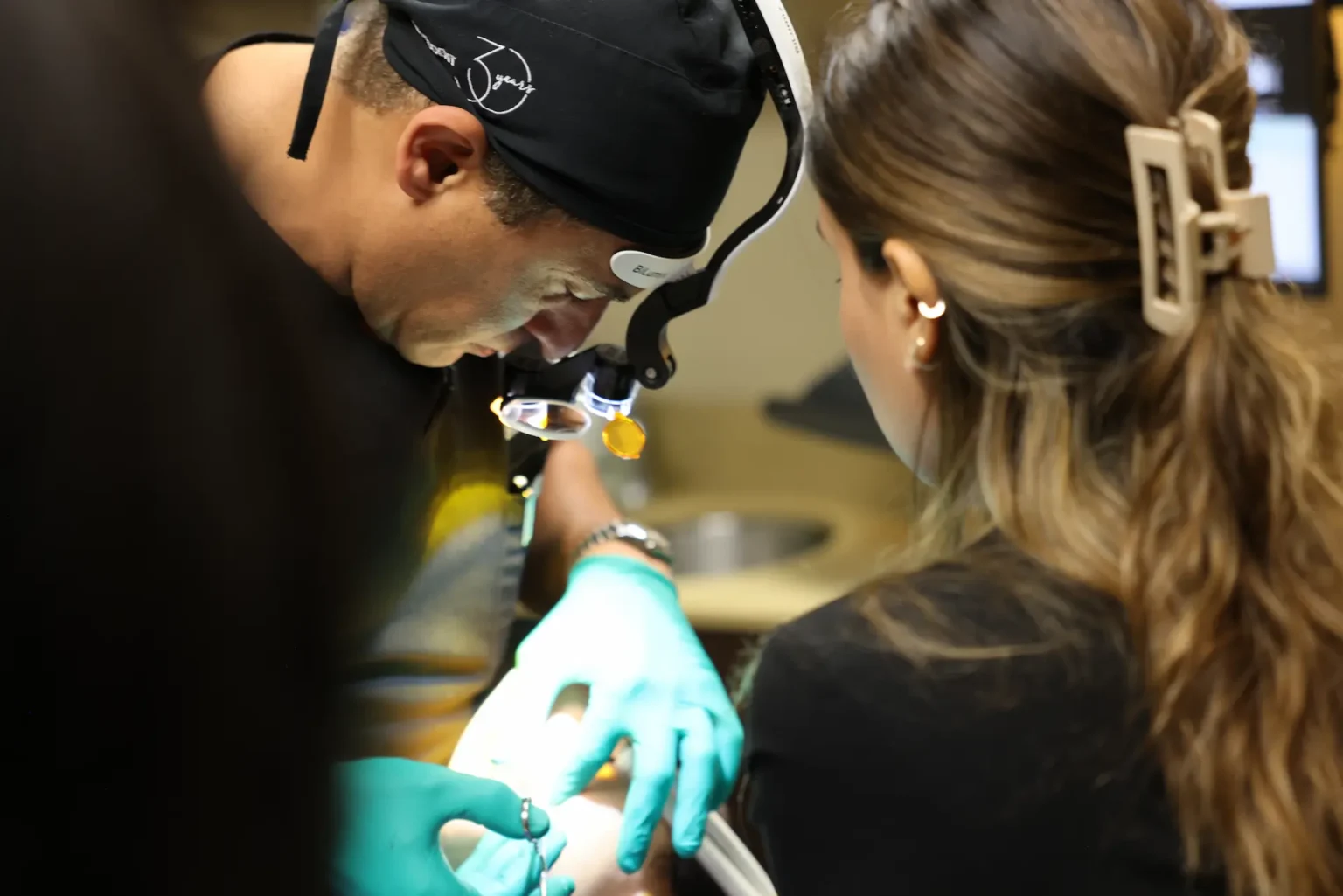Swollen lymph nodes can be uncomfortable and worrying. You may feel a tender lump under your chin, on the side of your neck, or near your jaw. This swelling usually means your body is fighting an infection. But can bad teeth cause swollen lymph nodes?
Yes, dental problems can make your lymph nodes swell. When bacteria from an infection in your tooth or gums spread, your immune system responds by activating nearby lymph nodes. This can cause pain, tenderness, and discomfort. If you have swollen lymph nodes along with tooth pain, gum inflammation, or an untreated cavity, your oral health could be the reason.
Key Takeaways
- Yes, bad teeth can cause swollen lymph nodes. Swollen lymph nodes are a sign of infection.
- Tooth infections, gum disease, and wisdom teeth are common triggers.
- Swollen lymph nodes should go down after treatment. Ignoring the problem can make it worse.
- A dental specialist can check for swollen lymph nodes. Good oral hygiene and regular check-ups help prevent infections.
- Dental implants can be a long-term solution. If you have recurring infections or missing teeth, implants can prevent future problems and improve your oral health.
Understanding Lymph Nodes and Their Role in the Body
Lymph nodes are small, bean-shaped glands that help our bodies fight infections. They filter harmful substances and produce white blood cells that attack bacteria and viruses. There are hundreds of lymph nodes throughout the body, but the ones in the head, face, and neck play a key role in oral health.
When the body detects an infection, the lymph nodes trap and destroy harmful bacteria before they spread. This defense system protects us, but it can also cause swelling, tenderness, and pain.
If bacteria from a tooth infection, gum disease, or oral abscess enter the bloodstream, the lymph nodes work harder to fight back. This can make them enlarge and feel tender, especially under the chin, jaw, or along the neck.
Common signs include:
- A tender lump under the jaw or chin.
- Pain when swallowing or moving the head.
- Swelling on one or both sides of the neck.
- Redness or warmth over the swollen area.
Swollen lymph nodes usually mean the body is fighting an infection. But if the swelling doesn’t go away, keeps worsening and feels hard, it’s important to see a dental specialist or doctor. A lingering infection can spread and cause serious health problems if left untreated.
Dental Issues That Can Cause Swollen Lymph Nodes
When bacteria from the mouth spread, the immune system responds by activating nearby lymph nodes. This activation can cause pain, swelling, and tenderness.
Here are the common dental issues that can cause swollen lymph nodes:
Tooth Infections and Abscesses
If left untreated, a tooth infection can turn into an abscess, which is a pocket of fluid that forms at the root of the tooth or in the gums.
Signs of a tooth abscess:
- Severe, throbbing pain that may spread to the jaw, ear, or neck.
- Swelling in the face or gums.
- A lump or pus drainage near the affected tooth.
- Bad breath or a bad taste in the mouth.
An untreated abscess can spread to nearby tissues and into the lymph nodes under the jaw and chin. This makes them swell as the body fights the infection. If the swelling is getting worse or is accompanied by fever, seek urgent dental care.
Gum Disease (Gingivitis and Periodontitis)
Gum disease happens when bacteria build up along the gum line, leading to inflammation. In the early stages (gingivitis), gums become red, swollen, and bleed easily. If untreated, it can turn into periodontitis, a more serious infection that damages the gums and bone.
Here’s how gum disease can affect lymph nodes:
- The body fights gum infection by triggering the lymph nodes in the jaw and neck.
- The longer the infection lasts, the more swelling and tenderness may occur.
- Abscesses can form, making the infection worse.
Cavities and Deep Dental Decay
A cavity is a hole in the tooth caused by bacteria. Small cavities may not cause symptoms, but deeper ones can expose nerves and blood vessels. When bacteria reach the tooth’s inner layers, an infection can develop.
Symptoms of deep decay include:
- Sharp pain when eating or drinking.
- Sensitivity to hot, cold, or sweet foods.
- Swollen gums near the affected tooth.
Wisdom Teeth and Impacted Teeth
Wisdom teeth often don’t have enough space to grow properly. If they get stuck under the gums (impacted) or only partially erupt, they can trap food and bacteria. This can cause infection, swelling, and pain.
How impacted wisdom teeth cause lymph node swelling:
- Bacteria buildup leading to red, swollen, and painful gums.
- The infection spreads to the lymph nodes under the jaw and in the neck.
- Swelling can make it hard to chew, open the mouth, or swallow.
Post-Dental Procedure Inflammation
It’s common to have some swelling after tooth extractions, root canals, or other dental work. The body treats these procedures like an injury, triggering a healing response.
Here’s how you know swelling is normal:
- Mild discomfort and swelling for a few days after a procedure.
- Lymph nodes may feel slightly enlarged as the body heals.
You should be concerned if:
- Pain and swelling get worse instead of better.
- Fever or pus appears near the treated area.
- Swollen lymph nodes last longer than two weeks.
Symptoms of Dental-Related Lymph Node Swelling
Swollen lymph nodes from a dental problem don’t appear on their own. They are part of your body’s defense system, reacting to an infection or inflammation. If your oral health is the cause, you will likely notice other symptoms.
Lymph nodes that react to a dental infection often feel:
- Like a small lump under the jaw, chin, or sides of the neck.
- Tender or sore when touched.
- Swollen on one or both sides of the neck or jaw.
- Firm or slightly soft, depending on how severe the infection is.
In some cases, you might have neck pain under the jaw or chin, making it uncomfortable to turn your head or swallow.
How Dental Implants Can Prevent Issues from Bad Teeth

If you have missing or severely damaged teeth, dental implants can do more than restore your smile—they can protect your health. Infections often start when bacteria gather around broken teeth, deep cavities, or gaps in the gums.
When left untreated, these infections can spread, causing swollen lymph nodes and other serious issues. Dental implants replace both the visible tooth and its root, providing a stable and lasting solution.
If you have a history of tooth infections, gum disease, or repeated dental problems, implants can offer a permanent solution that improves your health. A consultation with us at Hanna Dental Implant Center can help you decide the best possible treatment plan for you.
Take Control of Your Oral Health with Hanna Dental Implant Center
Swollen lymph nodes can be a sign that something isn’t right with your oral health. Tooth infections, gum disease, and untreated decay can trigger your body’s immune response, leading to discomfort and potential complications. Ignoring these signs can allow infections to spread, putting your overall health at risk.
The good news is that these issues can be treated and prevented with expert dental care. At Hanna Dental Implant Center, we specialize in advanced dental solutions, from treating infections to providing permanent tooth replacements with dental implants.
Our experienced team ensures that you get the best care, whether you need urgent treatment for a dental infection or a long-term solution to prevent future problems. Book a consultation with us now to get started.
Frequently Asked Questions
Which lymph nodes would be swollen for infected teeth?
When a tooth infection spreads, it often affects the lymph nodes in the face and neck.
Can poor dental health cause swollen lymph nodes?
Yes. Untreated cavities, gum disease, and oral infections can lead to bacterial buildup, triggering an immune response. Swollen lymph nodes are a sign that your body is fighting the infection. If the dental issue isn’t treated, the infection can spread, making the swelling worse.
Can bad teeth cause lymphoma?
No, bad teeth do not cause lymphoma. Lymphoma is a type of cancer that affects the lymphatic system. However, chronic infections and inflammation from poor oral health can weaken the immune system, which may contribute to overall health risks. While swollen lymph nodes from a tooth infection are temporary, persistent or unexplained swelling should be checked by a doctor.
Can a dentist tell if you have swollen lymph nodes?
Yes. During a dental exam, a dentist checks for swollen lymph nodes by gently feeling the jaw, neck, and under the chin. If swelling is present, they will look for signs of infection, such as cavities, gum disease, or an abscess. If necessary, they may recommend X-rays or refer you to a medical specialist for further evaluation.
Can dental problems cause inflammation in the body?
Yes. Oral infections, gum disease, and untreated decay can lead to chronic inflammation, which affects the entire body. Bacteria from the mouth can enter the bloodstream, increasing inflammation in other areas. Treating dental infections promptly can help reduce inflammation and protect overall health.


